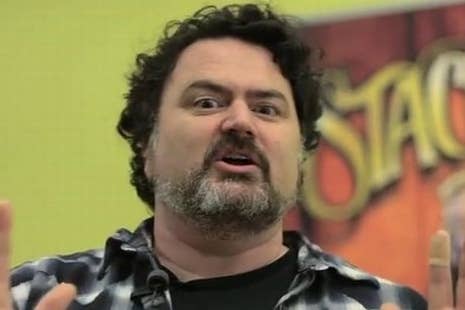Double Fine: Consoles can win over devs with reason
Tim Schafer believes Sony is on the right track with more open PlayStation 4
Double Fine founder Tim Schafer believes that Sony has hit upon a winning strategy with the PlayStation 4: treating developers in a reasonable fashion.
Speaking to OXM, Schafer said it was clear that Sony was taking a different approach with the PlayStation 4, because it had bothered to ask Double Fine for its opinion in the first place - the sort of privileged relationship Schafer associates with studios like Insomniac and Bungie.
"This is one of the first times where we've been approached by a platform holder like Sony and asked, 'first, what do you guys want from this new box? We have this new feature, what could you do with it?'" he said. "We've already got some guys playing with some of the new features to see what we can do with it".
This year's Game Developers Conference was positive for Sony's console, as the company's claims of a new inclusive approach to developers were lent credence by people both within the company and without.
Lead system architect Mark Cerny admitted that a primary objective was to avoid the hardware becoming "a puzzle" for programmers. This was supported by Epic's Mark Rein, who called the PS4's architecture, "a really perfect gaming PC."
"It's not that hard to win over developers because all we want is to be treated with just a little bit of reason," Schafer said. "Often you just get told the most unreasonable, crazy things and you're like 'really? That's how you're going to treat us?'
"Just doing things like letting us patch our games when we want to, put our games on sale and release our games in territories that they should be released in - just doing a few things like that can make a developer very enamoured of you."

